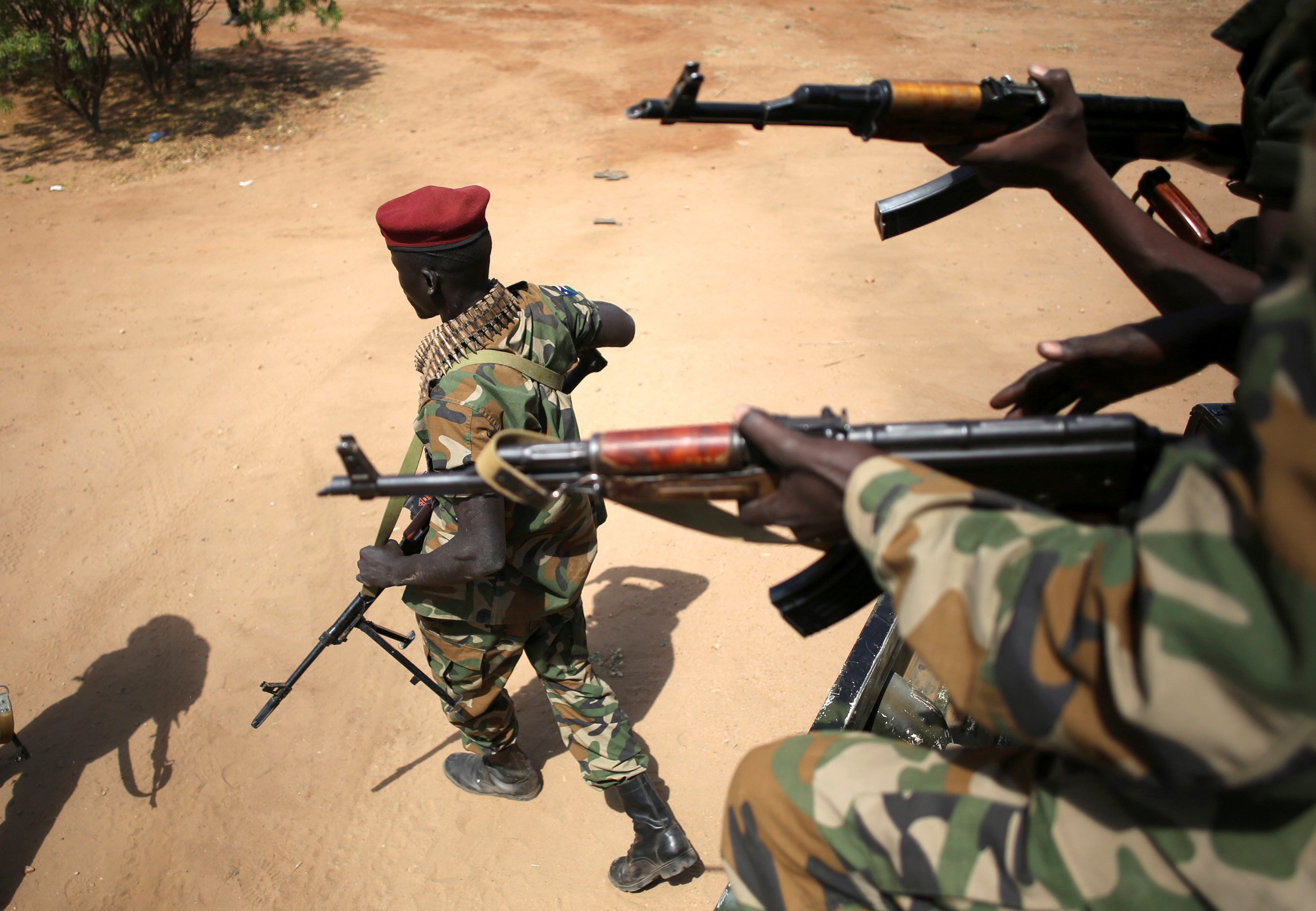
Soldiers in South Sudan killed over 100 civilians and committed atrocities including mass rape and attacks on funerals that may constitute war crimes or crimes against humanity, a U.N. report has concluded Friday.
During a seven-month offensive, the South Sudanese army and allied militias killed 114 civilians in the town of Yei as they pursued rebel leader Riek Machar. Machar fled the capital Juba in July 2016 and sought refuge in neighboring Democratic Republic of Congo.
The U.N. report said that rebel forces had also committed crimes, including murder and rape, but the extent of their infractions was unclear because of a lack of access.
South Sudan has been beset by civil war for most of its six-year history as an independent state. The conflict broke out in December 2013, when President Salva Kiir accused Machar, then the vice president, of plotting a coup.
Despite a peace agreement signed by both sides in 2015 and several lulls in fighting, the conflict has worsened in recent months and displaced more than 3 million people. The conflict is also one of the main causes of a famine that has left 100,000 people on the brink of starvation.
"The conflict in Yei once again highlights the startling level of impunity in South Sudan, which has fed successive cycles of violence across the country," said the report, the result of a joint investigation by the U.N.'s peacekeeping mission in South Sudan (UNMISS) and the organization's human rights branch.
"Some of the human rights violations and abuses committed in and around Yei may amount to war crimes and/or crimes against humanity and warrant further investigation," the report concluded.
Read more: Why South Sudan is one of the world's most dangerous places for aid workers
A spokesman for the South Sudanese army, known as the SPLA, told Reuters the report was "baseless." "This is not the first time the U.N. has accused the SPLA and tried to portray us as enemies of the people," said Colonel Santo Domic Chol.
South Sudan's conflict has proceeded along ethnic lines—President Kiir is from the majority Dinka, while Machar is a Nuer, an ethnic minority—and has raised fears of a genocide similar to the one that occurred in Rwanda in 1994. There, extremists from the Hutu majority killed at least 800,000 people of the Tutsi minority as well as moderate Hutus over a 100-day period.
The U.N. report said that Yei, a town in the country's southwest, was previously an ethnically-diverse town of up to 300,000 residents. But recent fighting forced the Dinka to be bussed out of the town and to the capital Juba. Thousands of civilians have been forced to flee to neighboring countries. Between the start of 2016 and February 2017, half a million South Sudanese had fled into neighboring Uganda, according to the report.
The report documented various atrocities committed by government soldiers and militias backing President Kiir. In one attack in August 2016, SPLA soldiers attacked a funeral in Yei and assaulted mourners. When a male mourner protested, the soldiers took him and a female into the nearby bush, raped and shot the woman and shot the man in the stomach. Both died of their injuries.
But army spokesman Domic rejected the allegations and claimed President Kiir had instructed SPLA commanders in Yei to punish those guilty of gender-based violence. "The SPLA is one of the biggest military institutions in the country and it accommodates people from different background[s] and the whole SPLA cannot go out and rape citizens...so it has to be specific that we have seen two or three SPLA soldiers in such location committing such crimes," Domic told Reuters.
Uncommon Knowledge
Newsweek is committed to challenging conventional wisdom and finding connections in the search for common ground.
Newsweek is committed to challenging conventional wisdom and finding connections in the search for common ground.
About the writer
Conor is a staff writer for Newsweek covering Africa, with a focus on Nigeria, security and conflict.
To read how Newsweek uses AI as a newsroom tool, Click here.








